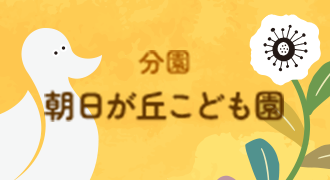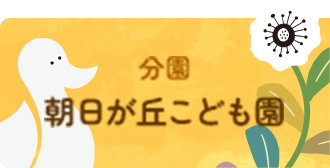国際バカロレア(IB)とは
ABOUT THE IB国際バカロレア機構(本部ジュネーブ)が提供する国際的な教育プログラム。
国際バカロレア(IB:International Baccalaureate)は、1968年、チャレンジに満ちた総合的な教育プログラムとして、世界の複雑さを理解して、そのことに対処できる生徒を育成し、生徒に対し、未来へ責任ある行動をとるための態度とスキルを身に付けさせるとともに、国際的に通用する大学入学資格(国際バカロレア資格)を与え、大学進学へのルートを確保することを目的として設置されました。現在、認定校に対する共通カリキュラムの作成や、世界共通の国際バカロレア試験、国際バカロレア資格の授与等を実施しています。
The IB offers international educational programmes provided by the International Baccalaureate Organization (headquartered in Geneva).
The IB was founded in 1968 as a challenging, comprehensive educational programme aiming to develop students who understand and cope with the complexity of the world and help them acquire the attitude and skills needed to conduct themselves responsible for the future, as well as to secure a pathway to university admission for students by providing them with the internationally accepted university entrance qualification (International Baccalaureate degree). Currently, the IB creates a common curriculum for accredited schools and conducts worldwide International Baccalaureate examinations and awards International Baccalaureate qualifications.
IBの使命
THE IB MISSION国際バカロレア(IB)は、多様な文化の理解と尊重の精神を通じて、より良い、より平和な世界を築くことに貢献する、探究心、知識、思いやりに富んだ若者の育成を目的としています。
この目的のため、IBは、学校や政府、国際機関と協力しながら、チャレンジに満ちた国際教育プログラムと厳格な評価の仕組みの開発に取り組んでいます。
IBのプログラムは、世界各地で学ぶ児童生徒に、人がもつ違いを違いとして理解し、自分と異なる考えの人々にもそれぞれの正しさがあり得ると認めることのできる人として、積極的に、そして共感する心をもって生涯にわたって学び続けるよう働きかけています。
The IB aims to develop inquiring, knowledgeable and caring young people who help to create a better and more peaceful world through intercultural understanding and respect.
To this end the organization works with schools, governments and international organizations to develop challenging programmes of international education and rigorous assessment. These programmes encourage students across the world to become active, compassionate and lifelong learners who understand that other people, with their differences, can also be right.
IBプログラム
THE IB PROGRAMMESグローバル化に対応できるスキルを身に付けた人材を育成するため、生徒の年齢に応じて、以下の教育プログラムを提供。
Providing the following educational programmes according to the age of students in order to develop human resources with the skills to cope with globalization:
-
- 当園のプログラム
PYP/3-12歳
Primary Years Programme(PYP) / ages 3 to 12 -
精神と身体の両方を発達させることを重視したプログラム。どのような言語でも提供可能。
Focusing on mental and physical development. Available in any language.
- 当園のプログラム
-
-
MYP/11-16歳
Middle Years Programme(MYP) / ages 11 to 16 -
青少年に、これまでの学習と社会のつながりを学ばせるプログラム。どのような言語でも提供可能。
Helping young people learn about the connections between their studies in the past and society. Available in any language.
-
-
-
DP/16-19歳
Diploma Programme(DP) / ages 16 to 19 -
所定のカリキュラムを2年間履修し、最終試験を経て所定の成績を収めると、国際的に認められる大学入学資格(国際バカロレア資格)が取得可能。原則として、英語、フランス語又はスペイン語で実施。一部科目は日本語で実施(デュアルランゲージディプロマプログラム:DLDP)
Helping students obtain an internationally recognized university-entrance qualification (the IB Diploma) when they complete the prescribed curriculum for two years and achieve certain grades after passing the final examination. In principle, conducted in English, French, or Spanish, with some subjects offered in Japanese (Dual Language Diploma Programme: DLDP).
-
-
-
IBCP/16-19歳
Career-related Programme (IBCP) / ages 16 to 19 -
生涯のキャリア形成に役立つスキルの習得を重視したキャリア教育・職業教育に関連したプログラム。一部科目は、英語、フランス語又はスペイン語で実施。※日本での導入校はまだありません。(詳細:IB機構サイト参照)
Related to career and vocational education, which emphasizes the acquisition of skills useful for lifelong career development. Some of the subjects are conducted in English, French, or Spanish.
*There are no schools yet that have introduced this programme in Japan. (For detailed information, please refer to the website of the IB.)
-
IBの学習者像
THE IB LEARNER PROFILE「IBの学習者像」は、「IBの使命」を具体化したもので、「国際的な視野をもつとはどういうことか」という問いに対するIBの答えの中核を担っています。具体的には、IB認定校が価値を置く人間性を、以下10の人物像として表しています。
The IB Learner Profile embodies the IB mission and plays the core role for IB’s answers to the question, “What does it mean to have an international perspective?” Specifically, the attributes valued by IB World Schools are represented as the following 10 learner profiles.

探究する人
INQUIRERS私たちは、好奇心を育み、探究し研究するスキルを身につけます。ひとりで学んだり、他の人々と共に学んだりします。熱意をもって学び、学ぶ喜びを生涯を通じてもち続けます。
We nurture our curiosity, developing skills for inquiry and research. We know how to learn independently and with others. We learn with enthusiasm and sustain our love of learning throughout life.

知識のある人
KNOWLEDGEABLE私たちは、概念的な理解を深めて活用し、幅広い分野の知識を探究します。地域社会やグローバル社会における重要な課題や考えに取り組みます。
We develop and use conceptual understanding, exploring knowledge across a range of disciplines. We engage with issues and ideas that have local and global significance.

考える人
THINKERS私たちは、複雑な問題を分析し、責任ある行動をとるために、批判的かつ創造的に考えるスキルを活用します。率先して理性的で倫理的な判断を下します。
We use critical and creative thinking skills to analyse and take responsible action on complex problems. We exercise initiative in making reasoned, ethical decisions.

コミュニケーションが
できる人
COMMUNICATORS
私たちは、複数の言語やさまざまな方法を用いて、自信をもって創造的に自分自身を表現します。他の人々や他の集団のものの見方に注意深く耳を傾け、効果的に協力し合います。
We express ourselves confidently and creatively in more than one language and in many ways. We collaborate effectively, listening carefully to the perspectives of other individuals and groups.

信念をもつ人
PRINCIPLED私たちは、誠実かつ正直に、公正な考えと強い正義感をもって行動します。そして、あらゆる人々がもつ尊厳と権利を尊重して行動します。私たちは、自分自身の行動とそれに伴う結果に責任をもちます。
We act with integrity and honesty, with a strong sense of fairness and justice, and with respect for the dignity and rights of people everywhere. We take responsibility for our actions and their consequences.

心を開く人
OPEN-MINDED私たちは、自己の文化と個人的な経験の真価を正しく受け止めると同時に、他の人々の価値観や伝統の真価もまた正しく受け止めます。多様な視点を求め、価値を見いだし、その経験を糧に成長しようと努めます。
We critically appreciate our own cultures and personal histories, as well as the values and traditions of others. We seek and evaluate a range of points of view, and we are willing to grow from the experience.

思いやりのある人
CARING私たちは、思いやりと共感、そして尊重の精神を示します。人の役に立ち、他の人々の生活や私たちを取り巻く世界を良くするために行動します。
We show empathy, compassion and respect. We have a commitment to service, and we act to make a positive difference in the lives of others and in the world around us.

挑戦する人
RISK-TAKERS私たちは、不確実な事態に対し、熟慮と決断力をもって向き合います。ひとりで、または協力して新しい考えや方法を探究します。挑戦と変化に機知に富んだ方法で快活に取り組みます。
We approach uncertainty with forethought and determination; we work independently and cooperatively to explore new ideas and innovative strategies. We are resourceful and resilient in the face of challenges and change.

バランスのとれた人
BALANCED私たちは、自分自身や他の人々の幸福にとって、私たちの生を構成する知性、身体、心のバランスをとることが大切だと理解しています。また、私たちが他の人々や、私たちが住むこの世界と相互に依存していることを認識しています。
We understand the importance of balancing different aspects of our lives—intellectual, physical, and emotional—to achieve well-being for ourselves and others. We recognize our interdependence with other people and with the world in which we live.

振り返りができる人
REFLECTIVE私たちは、世界について、そして自分の考えや経験について、深く考察します。自分自身の学びと成長を促すため、自分の長所と短所を理解するよう努めます。
We thoughtfully consider the world and our own ideas and experience. We work to understand our strengths and weaknesses in order to support our learning and personal development.
文部科学省IB教育推進コンソーシアム 「IB(国際バカロレア)とは」ページより内容抜粋
PYPの探究活動
INQUIRY ACTIVITIES OF PYP
当園では、国際バカロレア初等教育プログラム(PYP)の探究活動を通じて、子どもたちの好奇心と学ぶ意欲を育てています。子ども達が自らの興味や関心に基づいて、主体的に学びを深め、未来に向けて必要なスキルを身につけ、成長していくための重要な基盤となります。一人ひとりが自信を持って世界に羽ばたく力を養うことを目指しています。
At our kindergarten, we nurture children's curiosity and eagerness to learn through inquiry-based activities in the International Baccalaureate Primary Years Programme (PYP). This approach encourages children to explore their interests actively, deepen their learning, and acquire essential skills for the future. It serves as a crucial foundation for their growth, empowering each child with the confidence to spread their wings and thrive in the world.
-
主体的な「探究学習」

教科の枠を越えた6つのテーマに基づき、子ども達が異なる視点から世界を探究します。各テーマは複数の学問分野(言語、算数、理科、社会、芸術、体育など)を統合して学びます。このアプローチにより、子どもたちは多角的な視野で問題を解決する能力を身につけます。
Based on six transdisciplinary themes, children explore the world from different perspectives. Each theme integrates multiple subject areas, such as language, mathematics, science, social studies, arts, and physical education. This approach helps children develop the ability to solve problems with a broad and multifaceted perspective.
教科の枠を越えた6つのテーマ
SIX TRANSDISCIPLINARY THEMES- 私たちは誰なのかWho we are
- 私たちのはどのような場所と
時代にいるのかWhere we are in place and time - 私たちはどのように自分を表現するのかHow we express ourselves
- 世界はどのような仕組みになっているのかHow the world works
- 私たちは自分たちをどのように
組織しているのかHow we organize ourselves - この地球を共有するということSharing the planet
-
深い学びを支える「概念理解」

7つの特定概念は物事をとらえるレンズであり、客観的・多面的に考える力を養います。また、子ども達は深い理解を得ることができ、複雑な問題に対処する力を身につけます。
The seven specified concepts serve as lenses through which we view the world, fostering the ability to think objectively and from multiple perspectives. They also help children develop a deep understanding and equip them with the skills to tackle complex problems.
7つの特定概念
SEVEN SPECIFIED CONCEPTS- 特徴FORM
-
物や現象がどのように見えるか、どのような特徴を持っているかを探究します。
(例:色、形、大きさなど)Exploring how objects and phenomena appear and what characteristics they have.
(Example: Color, shape, size, etc)
- 機能FUNCTION
-
物や現象がどのように動作するか、その働きや目的を理解します。
(例:植物が光合成を行う仕組み)Understanding how objects and phenomena work, their roles, and their purposes.
(Example: The process of photosynthesis in plants)
- 因果CAUSATION
-
原因と結果の関係を探り、なぜ物事がそうなったのかを理解します。
(例:火災が発生する原因とその影響)Investigating cause-and-effect relationships to understand why things happen.
(Example: Causes and effects of a fire)
- 変化CHANGE
-
変化の過程や結果を観察し、どのように変わっていくかを理解します。
(例:季節の移り変わりや生物の成長)Observing processes and outcomes of change to understand how things evolve.
(Example: Seasonal transitions or the growth of living organisms)
- 連結CONNECTION
-
異なる要素がどのように関連し合っているかを探究します。
(例:食物連鎖や人間と環境の関係)Exploring how different elements are related to one another.
(Example: Food chains or the relationship between humans and the environment)
- 視点PERSPECTIVE
-
異なる視点や立場から物事を考え、理解します。
(例:歴史的な出来事に対する異なる視点)Considering and understanding things from different viewpoints.
(Example: Different perspectives on historical events)
- 責任RESPONSIBILITY
-
行動や選択の結果に対する責任を考え、自分たちがどのように影響を与えるかを理解します。(例:環境保護に対する責任)
Reflecting on the consequences of actions and choices, and understanding their impact.
(Example: Responsibility for environmental conservation)
-
ともに学ぶ「協働学習」

協働学習は、子ども達が他の子どもや先生と一緒に学ぶことで、互いに知識や意見を共有し、共通の目標に向かって協力して取り組む学習方法です。また、社会的なスキルや問題解決能力を身につけ、より良い学びの環境を構築することができます。
Collaborative learning is a way for children to learn together with other children and teachers, sharing knowledge and opinions with each other and working together toward a common goal. It also helps children develop social and problem-solving skills and build a better learning environment.
-
相互尊重と協力
MUTUAL RESPECT AND COOPERATION子ども達は互いの意見や視点を尊重し、協力して課題を解決します。この過程でコミュニケーション能力やリーダーシップが育まれます。
Children respect each other's opinions and viewpoints and work together to solve problems. This process fosters communication and leadership skills.
-
多様な視点の共有
SHARING OF DIVERSE PERSPECTIVES異なるバックグラウンドを持つ子ども同士が交流し、さまざまな視点やアイデアを共有することで、より深い理解が得られます。
Children from different backgrounds interact with each other and share various perspectives and ideas to gain a deeper understanding.
-
自己調整型学習
SELF-REGULATED LEARNINGグループ内で役割分担を行い、各自が自律的に学びを進めることで、自己調整型学習が促進されます。
Self-regulated learning is promoted by assigning roles within the group and allowing each participant to learn autonomously.
-
批判的思考の養成
CRITICAL THINKING他者の意見を聞き、それに対して問いを投げかけることで、批判的思考力が鍛えられます。
Critical thinking skills are developed by listening to and questioning the opinions of others.
-
活動の方針
ACTIVITY POLICY国際バカロレア参考リンク
| 国際バカロレア機構ウェブサイト(英語) | https://www.ibo.org/ |
|---|---|
| 文部科学省IB教育推進コンソーシアム | https://ibconsortium.mext.go.jp/ |








令和7年度、当園は群馬県で初
国際バカロレア「初等教育プログラム(PYP)認定校」に認定されました